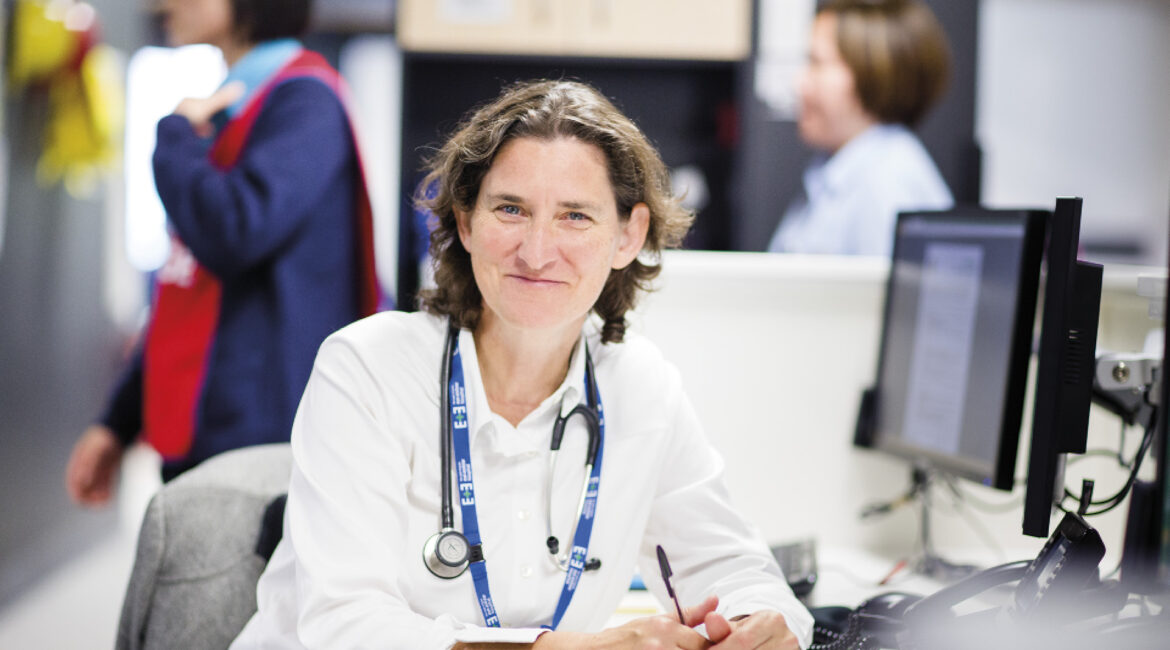The theme for this year’s ANZA – Society to Improve Diagnosis in Medicine (SIDM) Conference is ‘Improving Diagnosis, Embracing Challenges and Change’. Improving diagnosis is possible by sharing uncertainty and communicating with trust, and it is now firmly on the patient safety radar in Australia and New Zealand.
By Amy Fallon
An estimated 140,000 cases of diagnostic error occur each year in Australia, with 21,000 cases resulting in serious harm and 2,000-4,000 deaths according to an article by Professor Ian Scott, Director of Emergency and Clinical Epidemiology at Princess Alexandra Hospital and the University of Queensland, and Associate Professor Carmel Crock, Director of the Emergency Department at the Royal Victorian Eye and Ear Hospital, noting that the term diagnostic error refers to a diagnosis that is missed, wrong or delayed.
The article also notes that “more than 80 per cent of diagnostic errors are preventable. Some form of diagnostic error occurs in up to one in seven clinical encounters, according to the authors of a Perspective published online on September 21, 2020, by Cate Swannell, the Medical Journal of Australia.”
“One of the synergies I see with Rotary is that ANZA-SIDM is raising awareness that diagnosis is a team effort, where the patient and the doctor and others are working together collaboratively. Rotarians ‘Serve to Change Lives’ all over the world with consultation, planning, standards, outcomes, passion, teamwork and results.”
In April 2022, Associate Professor Dr Carmel Crock OAM, founder of the Australian and New Zealand Affiliate of the Society to Improve Diagnosis in Medicine (ANZA-SIDM), will convene the biennial conference ‘Improving Diagnosis, Embracing Challenges and Change’.
“Most people will experience a diagnostic error in their life, some with devastating consequences,” said Carmel. “You have got to get the diagnosis right before you can get the treatment right.
“What is unique about this conference is that it brings together the humanities and sciences. It is an incredible coming together of clinicians, patients and researchers, all passionately committed to making diagnosis safer in medicine. Practice innovation, advances in education, and the latest research in diagnostic quality and safety will be showcased.”
Helen Haskell, founder of non-profit Mothers Against Medical Error, whose 15-year-old son Lewis died in 2000 from a diagnostic error, will be one of the many speakers giving presentations. She is also co-chair of the World Health Organisation’s (WHO) Patients for Patient Safety advisory group.
Transmission of SARS-CoV-2 and diagnosis will be the timely subject of a session from Raina MacIntyre, Professor of Global Biosecurity and NHMRC Principal Research Fellow at UNSW.
“What is unique about this conference is that it brings together the humanities and sciences. It is an incredible coming together of clinicians, patients and researchers, all passionately committed to making diagnosis safer in medicine.”
Another highlight will include a presentation by Danielle Ofri, Clinical Professor of Medicine at New York University (NYU) School of Medicine and Editor-in-Chief of Bellevue Literary Review. Danielle is also the author of What Patients Say, What Doctors Hear and When We do Harm: A Doctor Confronts Medical Error.
Dr Mark L Graber, founder and President Emeritus of the Society to Improve Diagnosis in Medicine (SIDM) in the US, will focus attention on advancing diagnosis education as an international priority.
The author of Putting a Name to It: Diagnosis in Contemporary Society, Annemarie Goldstein Jutel, is an invited speaker, along with Professor Anne Duggan, the Chief Medical Officer at the Australian Commission on Safety and Quality in Health Care.
“One of the synergies I see with Rotary is that ANZA-SIDM is raising awareness that diagnosis is a team effort, where the patient and the doctor and others are working together collaboratively,” Carmel said.
“Rotarians bring their skills and qualifications from different professional backgrounds to the club projects they join. They ‘Serve to Change Lives’ all over the world with consultation, planning, standards, outcomes, passion, teamwork and results.
To register for the virtual 2022 ANZA-SIDM conference, April 28-29, visit www.improvediagnosis.org/conferences/anza-sidm-2022
